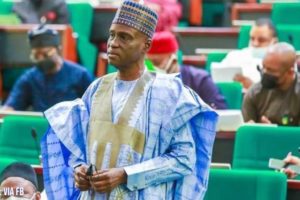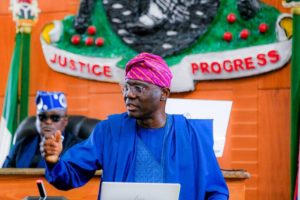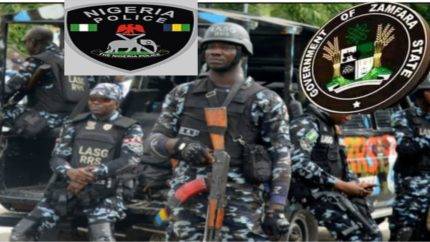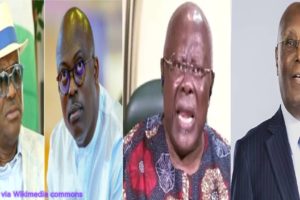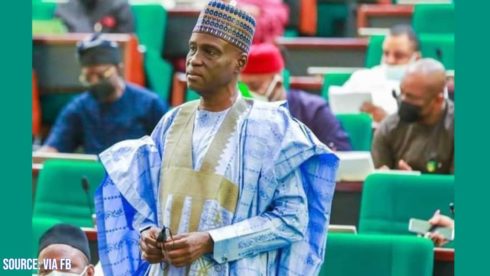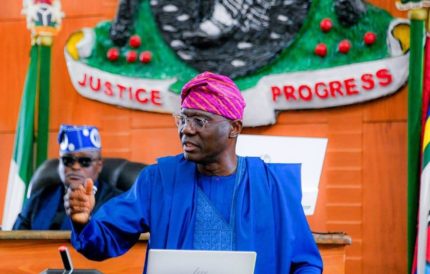Governor Babagana Zulum has announced the formation of a multi-agency relief committee. This committee includes representatives from top anti-corruption agencies such as the Economic and Financial Crimes Commission (EFCC), Independent Corrupt Practices and Other Related Offences Commission (ICPC), and the State Security Service (SSS). With various other organizations involved, this collaboration aims to provide effective oversight and transparency in relief distribution across the state.
Governor Babagana Zulum made it clear that the committee would be working with an initial pledge of N13.1 billion aimed at assisting victims of conflict, internally displaced persons (IDPs), and other vulnerable groups. However, there seems to be a gap in the pledged funds, as only N4.4 billion has been received so far, raising concerns about the financial flow required for swift intervention.
Governor Babagana Zulum Pledges N13.1 Billion to Support Relief Efforts
Governor Babagana Zulum’s commitment to supporting relief efforts is reflected in his recent announcement of a N13.1 billion allocation. The fund, which is intended to provide immediate assistance to affected communities, underscores the government’s determination to alleviate the challenges faced by thousands of displaced individuals. Despite the size of the pledge, only a fraction of the amount has been received as of yesterday.
“So far, we acknowledge a pledge of N13,195,500,000,” Zulum said in a recent statement. “However, as of yesterday (Sunday), we have received a total of N4,441,494,902.81.” This funding gap presents a challenge for the relief committee, which is now tasked with the critical role of ensuring that the funds are used efficiently and effectively.
Relief Committee Tasked With Accountability and Transparency
Governor Babagana Zulum has emphasized the importance of integrity, urging the newly formed committee to remain diligent in their mission. The inclusion of agencies like the EFCC and ICPC is seen as a measure to prevent misuse of funds and ensure accountability in the entire process. “To the members of the committee, I urge you to approach this task with diligence and integrity. We must be accountable for every resource entrusted to us,” Babagana Zulum stated.
With increasing public scrutiny, the presence of these agencies highlights the government’s commitment to transparency. This is particularly crucial, as mismanagement of relief funds has historically been a point of contention in crisis-stricken areas. The involvement of anti-corruption bodies is expected to provide confidence to both donors and beneficiaries alike.
Challenges in Fund Disbursement and Allocation
One of the immediate challenges facing the relief effort is the disparity between the pledged funds and the actual amount received. While N13.1 billion has been promised, only N4.4 billion has been released so far, leaving a significant gap in the available resources. This financial shortfall may impede the ability of the committee to respond promptly to the pressing needs of the affected populations.
The delay in fund disbursement raises questions about the mechanisms in place for transferring the pledged money and how soon the remaining funds will be made available. The committee will need to manage the situation efficiently, ensuring that the limited funds are allocated strategically to have the most immediate impact.
Governor Babagana Calls for Effective Utilization of Allocated Funds
Governor Babagana Zulum has placed a strong emphasis on ensuring that every naira allocated for relief efforts is used effectively. “We must ensure that every naira allocated for relief is used effectively and reaches those who are suffering,” Governor Babagana Zulum said. This directive is in response to concerns that relief funds often fail to reach the most vulnerable populations due to logistical challenges or mismanagement.
To mitigate this, the relief committee is expected to establish strict guidelines for fund distribution, ensuring that the money is directed to critical areas like food distribution, healthcare, shelter, and security for displaced persons. Efficient fund utilization will not only provide immediate relief but also restore public trust in the state government’s ability to manage crises.
Public Expectation and Government’s Response to Ongoing Crisis
As the humanitarian crisis continues to unfold in Borno State, public expectations for government action are high. Communities are looking to Governor Babagana Zulum’s administration to not only deliver on the pledged funds but also to provide sustainable solutions to the challenges posed by displacement and conflict. The establishment of the relief committee is seen as a step in the right direction, but much remains to be done.
The government’s ability to quickly mobilize resources, ensure transparency, and deliver timely aid will determine the success of these efforts. Governor Babagana Zulum has set a high standard for accountability, but the effectiveness of these measures will depend on the timely release of funds and the integrity of those involved in managing them.
Table of Contents
Discover more from OGM News NG
Subscribe to get the latest posts sent to your email.

